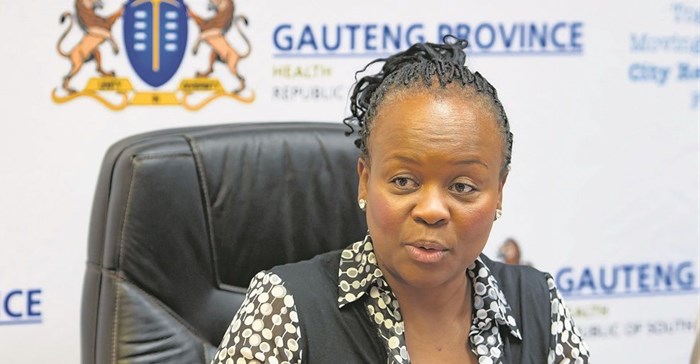
Top stories






More news


Marketing & Media
Ads are coming to AI. Does that really have to be such a bad thing?














Briefing the Portfolio Committee on Health, Ramokgopa said the provincial department has put in place a risk register to avoid a similar tragedy from happening again.
“The department is taking lessons from the Life Esidimeni tragedy, that things can go wrong - even if there are areas of good performance.
“We have a risk register, which also includes issues that we can pick up early to avoid the Life Esidimeni tragedy that happened through the mental health programme, a project that horribly went wrong,” she said.
This comes after retired Deputy Chief Justice Dikgang Moseneke handed down an arbitration award of R160.64m to the 135 families of Life Esidimeni mental health patients, who suffered and died tragically.
With the deadline for the payment of the arbitration award set for 19 June, Ramokgopa said speculation that the payment of the award would come from other provincial departments was “not correct”.
“The payment will be from Gauteng and not necessarily from the [provincial] Department of Health, but from the Gauteng Provincial Government and indeed, the Gauteng Provincial Government has looked at the possibility of going to National Treasury, not necessarily the National Department of Health, so other departments of health will not be affected by the award,” she said.
Ramokgopa said the provincial department has set itself a target of addressing shortcomings in the province’s healthcare system through a five-step approach.
This includes, among others, the reshaping of the operational design, governance and stewardship for an improved service delivery towards the National Health Insurance; modernising technology management systems; entrenching a culture of prudent financial management discipline; and strengthening clinical support for quality care and better health outcomes.
“There was an independent mid-term report that showed a number of areas of achievements – notably, the increase in life expectancy mainly due to the success of the anti-retroviral treatment programme and also the availability of access of other services.
“The mother-to-child transmission of HIV has been reduced from about 2% three years ago to 0.9% last year. So we are closer to the 0% transmission of HIV from mother to child,” she said.
The MEC said that there has also been a notable reduction in the maternal mortality.
The provincial department has the most number of clinics meeting the Office of Health Standards Compliance for Ideal Clinics status.
“I think for the second year in a row, we acknowledge that we needed to strengthen the governance of the health system, also taking lessons from the [Life Esidimeni] tragedy, which has had huge reputational damage and it has really made the country anxious.
“We go all over – from one accounting structure to the other – explaining and accounting over that, including the Human Rights Commission. We have appeared there. We also have the SIU (Special Investigating Unit) still doing investigations with the National Prosecuting Authority.
“We have also referred a number of staff that were involved in the project to the (Health Professional Council),” she said.
Over a number of years, the department has been unable to remain within its allocated budgets, which has resulted in a build-up of accruals for unpaid goods and services.
At the start of the 2017/18 financial year, accruals stood at R6.9bn. Out of this amount, the department has to date paid R4.3bn.
Ramokgopa said the provincial department is currently focusing its efforts on decentralisation and delegation to improve management.
“Our problem was that most of our functions were centralised and the facility managers were not empowered to even be responsive to issues they could resolve by themselves.
“Another area is driving performance and modernising information technology. The e-Health platform… was approved by the executive in November last year and we are also looking at the digitisation of patient records and improving overall business intelligence through management information and health information.
“The third area is entrenching prudent fiscal discipline throughout the department. This is very critical. There is general panic that the department does not have funds but we do have a budget… of R46bn… with a 15% increase from last year, which is quite significant. But the demand… far outstrips the supply,” Ramokgopa said.
SAnews.gov.za is a South African government news service, published by the Government Communication and Information System (GCIS). SAnews.gov.za (formerly BuaNews) was established to provide quick and easy access to articles and feature stories aimed at keeping the public informed about the implementation of government mandates.
Go to: http://www.sanews.gov.za